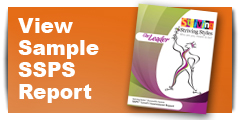ORGANIZATIONAL AND BUSINESS
Increasing Personal Effectiveness at Work
Our personal effectiveness when dealing with other people at work or in our personal lives depends on how skilled we our in communicating, listening, managing conflict and mastering our emotional and behavioural responses. Those of us who are lucky enough to be born with a predisposition to good relationship skills seem to advance in life at a faster rate than the rest of us. However, most of us are not blessed with those abilities. In fact, statistics show that although we are one of the most progressive nations on earth, we are sadly lagging in our ability to communicate effectively, have successful relationships, tolerate diversity and deal with the conflict that is inevitable in our day-to-day lives.
One of our collective assumptions is that our emotions mature on their own and we don’t need to do anything besides control or dismiss them to be effective in relationships. Another assumption is that we are supposed to know how to have successful relationships where we dialogue, work through conflict, relate from our feelings and be supportive and understanding, just because we are human. Our society places a disproportionate value on intelligence and relatively little if any value on emotions. As a result, we have not collectively done anything to help us to develop our relationship or interpersonal skills. Is it any wonder that statistics for failed marriages continue to escalate and workplace conflict robs companies of their profits and employees of a positive work environment? People are seeking therapists and counselors in record numbers because they don’t have the skills to have successful relationships. Substances help people regulate their feelings and self-esteem instead of using their relationships with others to help work through difficulties.
Our basic assumptions lead us to believe that we will mature emotionally with little or no effort on our part. Although we do mature to some degree, we do so without a conscious understanding of the process. We rarely develop the type of emotional intelligence to help us succeed in our professional lives. Therefore, instead of managing our emotions, we control them. Then when we are under too much stress, we lose control, act inappropriately, and have to make amends or deal with the consequences of our behaviour.
People do not come with user manuals. It makes you wonder why not. We have been studying for centuries the different styles, temperaments and humors of people, yet we have not yet realized that there is an enormous benefit from knowing what is “normal” for us, our Striving Style, our conflict style and where our unique abilities lie. Wouldn’t it make a relationship easier if we could read up on the person’s style in order to communicate, relate and interact in a way that leads to greater understanding and harmony? Of course, it would.
You probably wouldn’t drive a new car without reading the manual. Nor would you attempt to run a computer program without some basic training or a reference guide. And you wouldn’t go to another country without maps and tour guides to make sure your know what to expect once you were there. Yet, we run ourselves with little self-knowledge or awareness of what is normal for us. We are hard wired to behave and develop in certain ways and we are not privy to this information unless we seek it out. Some of us find ourselves in training sessions at work where we are introduced to the concept of personality types, emotional intelligence or developing behavioural competence, but it may be out of context or too difficult to understand how to integrate the information into day to day life. And some people take the position that there is nothing wrong with them so why bother changing now.
As long as our educational system does not teach interpersonal skills such as communication, conflict management, and active listening, we will have to continue learning these skills in the workplace. The good news is that as organizations embrace the knowledge that people with higher emotional intelligence and interpersonal skills add value to the bottom line and to the culture, they are investing in their employee’s development. Team learning using discussion and coaching rather than passive training is increasing the capacity of employees to work together and resolve their own conflict.
We do have user manuals for people. We have the forum for teaching emotional intelligence and increasing interpersonal effectiveness. Perhaps one day it will be an integral part of our system of education. However, for now, enlightened and progressive leaders will continue to lead the change through developing themselves and their employees while the rest of our society follow behind.



















0 Comments